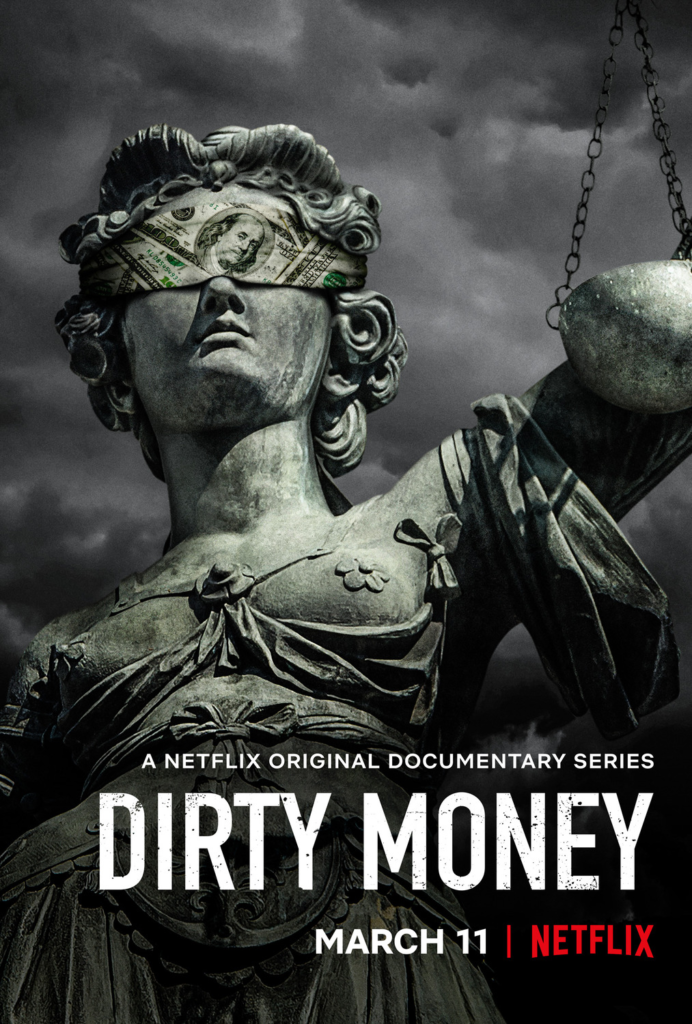Dirty Money Christian Review

In a world where corruption and greed often seem like the dominant forces at play, Dirty Money walks right into the lion’s den and shines a spotlight on the worst of the worst. It’s the kind of show that makes your stomach churn as you watch, revealing the dark underbelly of industries we interact with daily—banks, pharmaceuticals, the automotive industry. You name it. What’s different here, though, is that this isn’t just some sensationalized exposé meant to shock and awe you into a stupor. It’s not interested in giving you the thrill of watching some corporate villain get his comeuppance (though that would be satisfying too). Instead, it lays out its case in stark, matter-of-fact detail, inviting you to wrestle with the uncomfortable reality of just how pervasive this type of corruption is.
What’s It About? An Unflinching Look at Greed
Each episode of Dirty Money takes on a new case study, delving into a specific example of corporate malfeasance or financial manipulation, all framed around a central theme: greed. Now, that might sound almost too on-the-nose, especially for a Christian audience familiar with biblical warnings about the love of money. But what makes Dirty Money stand out is the precision of its storytelling. This isn’t your typical documentary with vague gestures at morality or some guy shouting, “Look! Corruption!” No, it gets down to the nitty-gritty of how these systems operate, taking us through every loophole, backdoor deal, and web of deceit that companies use to enrich themselves at the expense of ordinary people.
The Bible warns us repeatedly that the “love of money is the root of all kinds of evil” (1 Timothy 6:10), and Dirty Money is practically a living illustration of that verse. These aren’t just greedy people making a few unethical decisions; they’re meticulously building empires on the backs of people’s broken lives. Watching the show is like reading a modern-day Book of Amos — a prophet calling out the powerful for “selling the righteous for silver, and the needy for a pair of sandals” (Amos 2:6). Only here, it’s stock options, fraudulent loans, and life-saving drugs priced out of reach.
Production Style: Slick, Polished, but Detached
What strikes you right away about Dirty Money is its high production quality. Everything about it feels sharp — the pacing, the interviews, the intercuts between corporate meetings and devastated communities. The creators clearly want you to sit up and pay attention. But that same slickness can also create a certain distance between the viewer and the pain being portrayed. It’s as if you’re looking through a glass wall, watching the devastation unfold but somehow still removed from it. There’s a coldness that seeps into the storytelling, which might be why, even as you’re being informed and outraged, you never quite feel heartbroken. Maybe it’s because, unlike most exposés, Dirty Money doesn’t include a central narrator, a guide to help you navigate through the chaos. It’s up to you to connect the dots, which can be both empowering and exhausting.
It’s a little bit like being handed a map of a disaster zone and told, “Here, see for yourself.” You can trace the path of destruction from one corporation to the next, but the show never tells you what to do with that knowledge. And maybe that’s intentional. After all, a neatly packaged “lesson” at the end would undermine the show’s thesis that greed and corruption are endemic, built into the very fabric of these institutions.
Episode Highlights: Case Studies in Modern Greed
Each episode of Dirty Money is helmed by a different director, giving the series a kind of anthology feel. It’s not just a show; it’s six distinct investigations, each bringing its own tone and angle. Some episodes hit harder than others, depending on how much you already know about the particular scandal they’re covering. But the cumulative effect is powerful. When you binge the series (which, let’s be honest, is what most of us will do), you start to see patterns emerging — the same names popping up, the same tactics being used, the same feigned ignorance when companies are caught red-handed.
One of the most powerful episodes deals with payday loan schemes, a predatory industry that traps low-income people in cycles of debt. Watching it, you can’t help but think of the biblical injunction against charging interest to the poor (Exodus 22:25). It’s enraging, but it’s also heartbreaking. This isn’t just theoretical injustice; it’s real people’s lives being shredded. But again, there’s that sense of distance. The episode is expertly crafted, but it doesn’t linger long enough for you to really sit in the pain of the people affected. It moves on, efficiently, to the next point.
The Christian Response: Rage, Resolve, and Hope
Here’s where things get tricky for a Christian viewer. It’s easy to watch Dirty Money and walk away feeling angry, bitter, and even a little helpless. After all, the show doesn’t offer solutions. It doesn’t show you how these companies can be reformed or how these systems can be fixed. It simply lays out the facts and leaves you to grapple with them. But as Christians, we can’t stop there. We have to remember that, while the corruption Dirty Money exposes is horrifying, it’s not the final word. Greed is real, but so is grace. Corruption is pervasive, but so is the power of God to transform even the most hardened hearts.
That doesn’t mean we should sit back and wait for God to fix everything. We’re called to do justice, love mercy, and walk humbly with our God (Micah 6:8). Part of that means being informed, and Dirty Money is a good starting point. But we need to let that information drive us to action, not despair. Pray for the victims of these schemes. Support organizations that are fighting for transparency and accountability. And maybe, just maybe, let it stir up a holy anger in you — the kind of anger Jesus had when he turned over the tables of the money changers (Matthew 21:12-13).
Conclusion: An Eye-Opening, but Draining Watch
Dirty Money is not a show for the faint of heart. It’s relentless in its exposure of the depths of corporate greed, and it doesn’t hold your hand or give you easy answers. For a Christian viewer, it’s a sobering reminder of the power that sin has over our world and how deeply rooted that sin can become when it’s entangled with wealth and power. But it’s also a call to awareness — a reminder that we’re called to be “wise as serpents and innocent as doves” (Matthew 10:16). Watch it if you want to understand more about the systems we’re up against. Just make sure you balance it out with prayer, Scripture, and a hefty dose of hope. Because while Dirty Money is good at showing the problem, it’s not equipped to show the solution.
Final Rating: 7/10. Worth watching, but guard your heart and mind, and don’t let the darkness overshadow the light that we’re called to bring.







